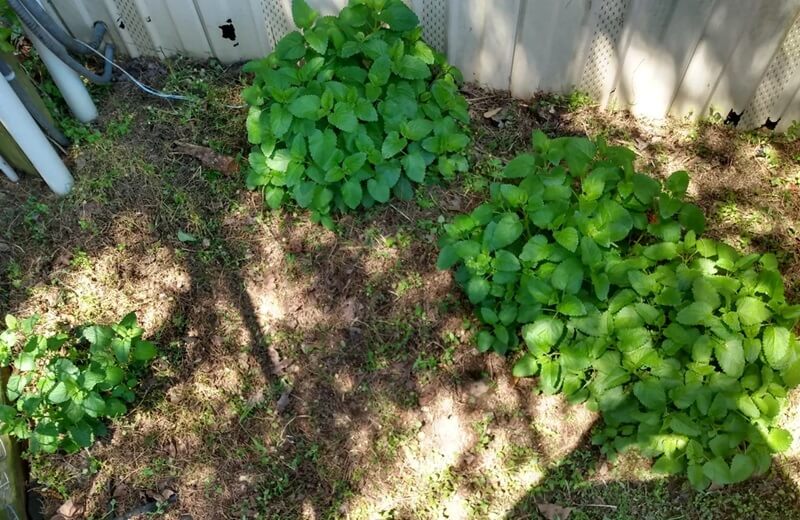One gardener's experience with an herb has been pleasantly surprising despite warnings of its invasive nature.
The Redditor shared a photo in the r/gardening community showing three clumps of lemon balm growing in an otherwise barren patch of land. They explained in the headline that they discarded the dying plant in the garden "thinking it was hopeless."

"Two years later, she's thriving more than any other herb I have," they added.
Several commenters cautioned how quickly the mint variant can grow out of control.
"Just be sure you don't let it go to seed, or it will soon become your best-smelling invasive weed," warned one person.
"Well it went to seed last year, which is why there are three bushes now instead of the one I started with," the original poster responded. "I don't mind if it takes over that whole space. I'll just have to keep an eye out that it doesn't escape."
"Kill it before it's too late," suggested another. The OP replied that they use the lemon balm for tea and would only start maintaining it after it filled the whole area, which could not support any other plants because it is typically shaded.
They also noted that though it isn't native, the plant "has more pros than cons" because it served as a home to bees.
🗣️ How often will you be gardening this summer?
🔘 Every day 🥗
🔘 At least once a week 🥕
🔘 At least once a month 🌱
🔘 I don't garden 🚫
🗳️ Click your choice to see results and speak your mind
Supporting pollinators keeps fruits and vegetables healthy and plentiful, but the idea of purposely cultivating an aggressive plant like mint is risky, as some gardeners can attest to.
One saw their garden swamped with apple mint after mindlessly dropping a few seedlings, while another experienced similar repercussions when they tried to fill a small outdoor space along a fence with mint. Growing native species at home is the safer and eco-friendlier choice.
Replacing traditional lawns with clovers, buffalo grass, and other low-maintenance options can save homeowners thousands of dollars and millions of gallons of water over a decade.
For at least this gardener, though, their accident has been fruitful — for now.
"I'm glad it's finally thriving though," they wrote. "It's my favorite herb for tea."
Join our free newsletter for easy tips to save more, waste less, and help yourself while helping the planet.









